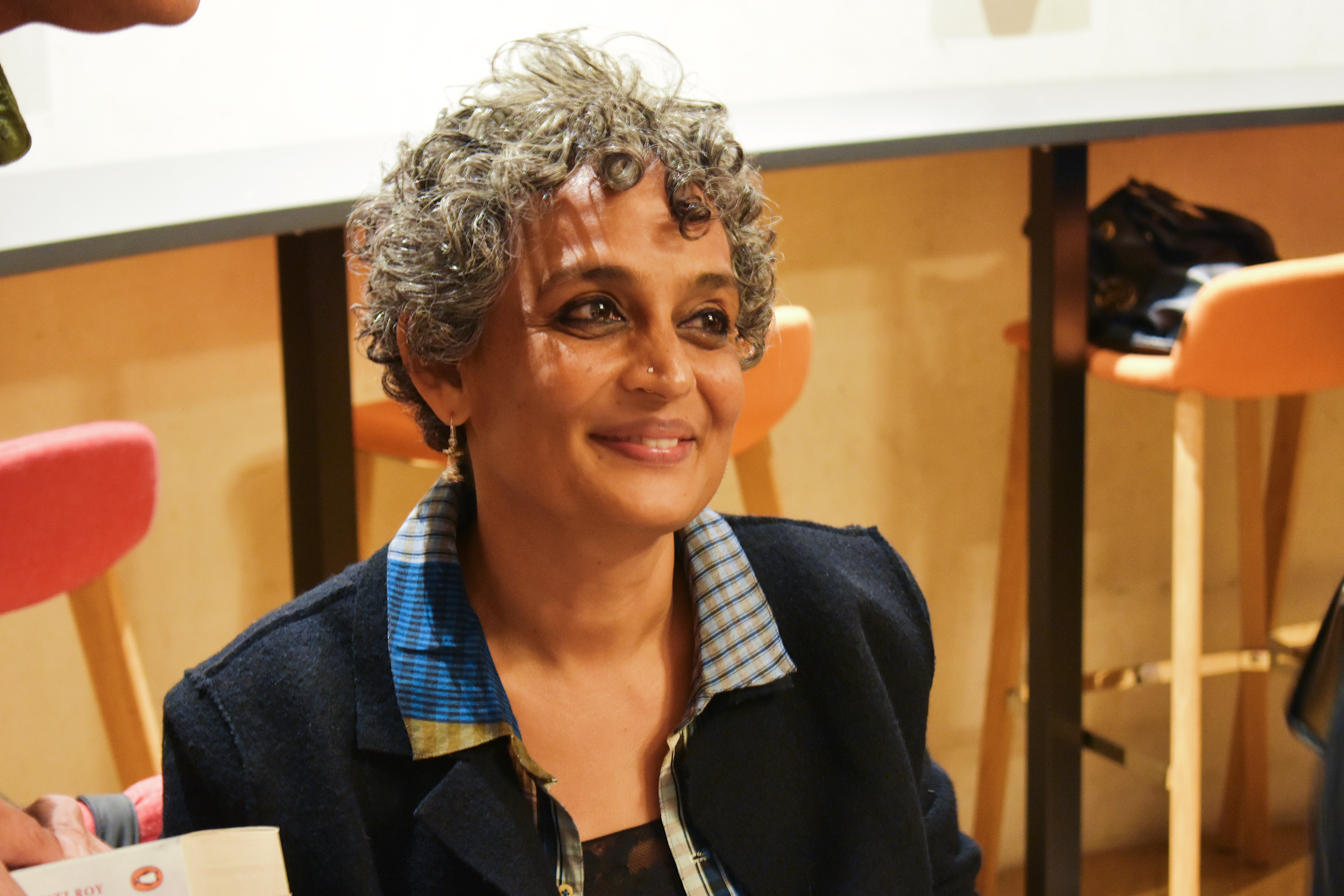Few noticed award-winning author and activist, Arundhati Roy, as she squeezed through the crowd last Saturday night at SOAS’ Brunei Gallery. The crowd she passed through, of course, was the very audience eagerly waiting to see her. Arundhati was on her way to deliver a talk titled, “Utmost Happiness & Utmost Sadness: The Diary of India nowadays”, the second lecture in the Liberte series, organized by the Noor Inayat Khan Memorial Trust and the SOAS South Asia Institute.
“We should open the School of Occidental and American Studies.”
Valerie Amos opened the event, and the author Shrabani Basu, who has written a biography of British agent Noor Inayat Khan, introduced Arundhati Roy. Roy began her talk reflecting on SOAS’ name. “Perhaps in India, we should open the School of Occidental and American Studies,” she teased.
Her talk went onto to touch on a series of interwoven issues from the meaning of ‘liberty’ (the last words reportedly uttered by Noor Inayat Khan before she was killed during WW2), the legacy of the partition of India and Pakistan, untidy identities in the face of those who would prefer order, and the state of censorship across South Asia today.
“Censorship now has been outsourced to the mob. We have these various groups who simplify their own identity, appoint their own spokespersons, decide their own history, fake their own history and then start burning cinema halls, attacking people, burning books, killing people.”
She explained, “The state has sort of moved out of the way of censorship and now it’s the rule of the mob and this is more terrifying than being hauled up for contempt of court and arguing your case.”
After she presented her talk, which she described as more of “setting up a landscape” through which to have a conversation, she sat down to have a public discussion with Shohini Gosh, a documentary filmmaker and professor of Mass Communications at Jamia Milla University, Delhi.
They discussed the literariness of both her non-fiction and fiction prose. At one point, Roy pointed out that Gosh had misquoted her, leading to a witty exchange of whether the author was ‘dead or not’ — a reference to the postmodern adage that the author no longer matters once a novel is finished.
Arundhati Roy won the Man Booker prize in 1997 for her novel The God of Small Things and recently published her second novel The Ministry of Utmost Happiness. She has also written more than a dozen essays dealing with issues varying from the construction of dams in the Narmada Valley, India to post-9/11 and state of surveillance today.
When asked how young writers should adjust their use of language to fit the requirements of professionalized life, she suggested that wasn’t really writing anyway.
“A writer’s job is to close the gap between language and thought. What they [NGOs and corporate professionals] do is the opposite — to widen the gap. Whatever they are, don’t call them writers.”
The evening finished with the author reading an extract from her work, followed shortly by a book signing outside the lecture hall.
MERAZ MOSTAFA, MA SOCIAL ANTHROPOLOGY OF DEVELOPMENT
